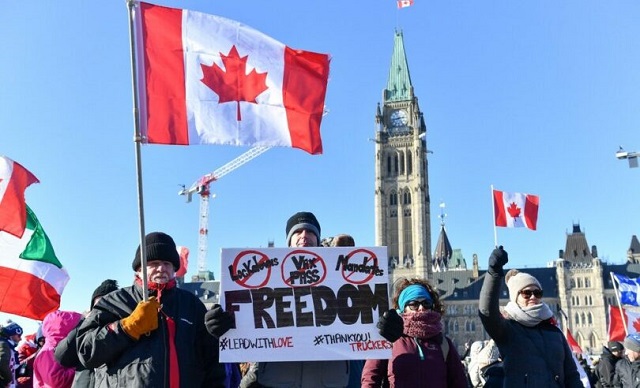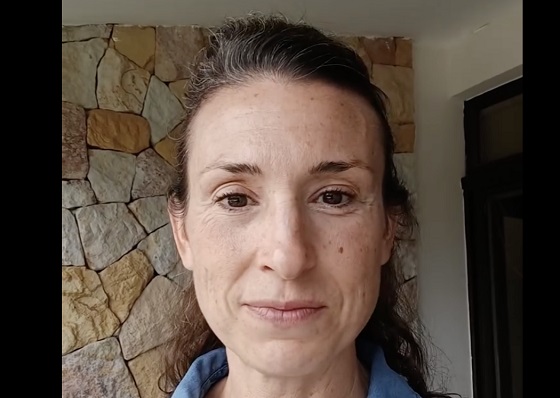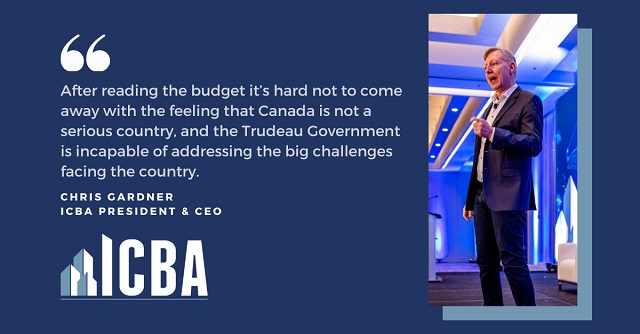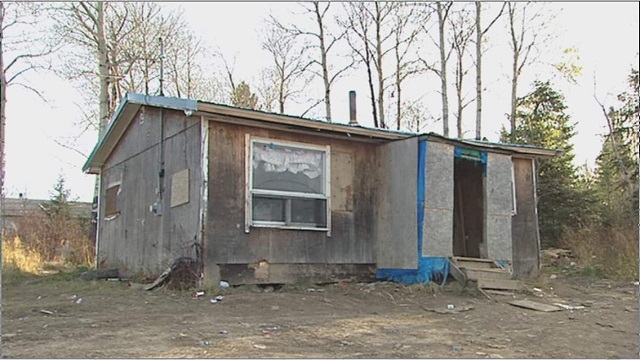COVID-19
The Federal COVID-19 Economic Response Plan

Freedom Convoy
Trudeau’s use of Emergencies Act has cost taxpayers $73 million thus far

From LifeSiteNews
Expenses for the Emergencies Act, the use of which a federal court ruled ‘not justified,’ included $17.5 million for a judicial inquiry, $400,000 for charter flights and $1.3 million for hotel rooms for out-of-town RCMP officers.
The Liberal government’s use of the Emergencies Act against the 2022 Freedom Convoy has cost Canadian taxpayers over $73 million thus far.
According to newly released records obtained by Blacklock’s Reporter, Prime Minister Justin Trudeau’s enactment of the Emergencies Act, the use of which has since been ruled “not justified” by a federal court, to drive out Freedom Convoy protestors from Ottawa in 2022, cost the Department of Public Safety $73,550,568.
According to Blacklock’s Reporter, the $73 million figure was part of records released by the department at the request of Conservative MP Ziad Aboultaif, and despite its high number, is not the final account.
“With regard to enactment of the Emergencies Act in 2022, what was the cost burden for the government?” Conservative MP Ziad Aboultaif asked.
“Cost associated with fiscal year 2023-2024 are still to be determined,” the department responded.
According to the Department of Public Safety, most of the public safety expenses were attributed to local authorities in Ottawa and Windsor, Ontario.
“It should be noted additional funding allocated by the government to Ottawa and its partners as well as Windsor were not specifically as a result of the Emergencies Act invocation but meant to compensate both municipalities for the extraordinary expenses incurred during and after the protracted blockades,” the report said.
Other expenses included $17.5 million for a judicial inquiry, $400,000 for charter flights, and $1.3 million for hotel rooms for out-of-town RCMP officers.
The costs were incurred after Trudeau enacted the Act on February 14, 2022 to shut down the Freedom Convoy protest which took place in Ottawa.
The popular protest featured thousands of Canadians calling for an end to COVID mandates by camping outside Parliament in Ottawa. Measures taken under the Act included freezing the bank accounts of Canadians who donated to the protest.
At the time, the use of the Act was justified by claims that the protest was “violent,” a claim that has still gone unsubstantiated.
In fact, videos of the protest against COVID regulations and vaccine mandates show Canadians from across the country gathering outside Parliament engaged in dancing, street hockey, and other family-friendly activities.
Indeed, the only acts of violence caught on video were carried out against the protesters after the Trudeau government directed police to end the protest. One such video showed an elderly women being trampled by a police horse.
Recently, Federal Court Justice Richard Mosley ruled that Trudeau was “not justified” in invoking the Emergencies Act.
However, the Trudeau government has doubled down on its heavy-handed response to citizen protesters, filing an appeal with the Federal Court of Appeal – a court where 10 of the 15 sitting judges were appointed by Trudeau.
COVID-19
Pro-freedom Canadian nurse gets two years probation for protesting COVID restrictions

Ontario nurse Kristen Nagle
From LifeSiteNews
Ontario nurse Kristen Nagle, a well-known figure in Canada’s pro-freedom movement during COVID, said her sentence of two-years probation is effectively a way for the government to silence her for the foreseeable future.
A Canadian nurse found guilty of violating Ontario’s COVID rules for participating in an anti-lockdown rally and speaking out against COVID mandates says despite scoring a recent “half-win” in court, her two-year probation sentence is designed to stop her from “speaking out or going against public health measures.”
“The Crown wanted an egregious amount of $50,000. They saw my GiveSendGo, they saw the support, they saw that I was not deterred by the $20,000 sentencing and so they wanted to sentence me for $50,000- and two-years’ probation,” said Canadian nurse Kristen Nagle in a Facebook video posted on March 21.
“So, kind of a half-win, the JP (justice of peace) agreed to the two years’ probation, I don’t really know what that looks like, what that means yet, but I’m under two years’ probation, I don’t know, and $7,500. And $7,500, is really not that bad compared to $50,000.”
Nagle was heavily involved with the activist group Canadian Frontline Nurses and became a well-known face from those in the medical community in Canada who protested both the mRNA COVID jabs and lockdown dictates imposed by all levels of government.
She worked at London Health Sciences Centre (LHSC) in Ontario before being terminated in 2021 for attending anti-lockdown rallies in 2020. She resigned from the College of Nurses of Ontario in January 2023.
Nagle was found guilty by a court in February for violating Ontario Premier Doug Ford’s Reopening Ontario Act (RAO), after she attended and spoke at an anti-lockdown rally on January 22, 2022, in London, Ontario.
At the end of March, a court ruled against the Crown’s requested $50,000 fine, and instead fined Nagle $7,500, plus a victim surcharge, which brought the total to $9,375, along with two years’ probation.
The event that led to Nagle being charged had a crowd size of some 150 people, which was over the allowed 10-person limit that was in place at the time.
Nagle’s current GiveSendGo fundraising page lists regular updates regarding the various charges incurred for speaking out against COVID mandates.
While the Ontario government and mainstream media consistently championed lockdowns as a means of halting the transmission of the highly survivable coronavirus, LifeSiteNews reported from the beginning that many experts were warning that lockdowns would inflict more harm than the virus itself.
Probation sentence a tool to discourage ‘speaking out,’ nurse says
Nagle said her two-year probation now means she “[c]annot commit a crime,” and “must keep the peace” and be on “good behavior and not commit the same offense,” which she said would impede her ability to speak freely.
“It just seems crazy that when this probation is over it will be 2026! That to me just seemed absurd to think this is still looming in the background until then,” she noted in a recent email to her followers.
“It was difficult to listen to them talk about the possibility of the next thing, and that we can’t have people going against public health measures in a crisis. It would be naive of them to think that we won’t find ourselves in something similar again, so this probation is to stop me from speaking out or going against public health measures should another ‘public health emergency’ find us again,” she added.
She also thanked everyone for their support in helping her, as well as everyone’s “encouragement, prayers, and financial contributions throughout the years!”
“You have no idea how much it has meant to me and my family and lifted up my spirits when I thought I could not go on!” she wrote in her email.
“Thank you for everything! It has meant more to me than words I am able to express!”
Earlier this year, Nagel was also found guilty of two charges under the RAO for attending as well as organizing another rally in November of 2020. She was fined $20,000.
Another charge against Nagle for attending an anti-lockdown protest was withdrawn.
In 2022, she was fined $10,000 for attending an Easter church service during Ontario’s COVID lockdowns in the spring of 2021, at the Aylmer Church of God. She appealed the fine, which was later reduced to $3,750.
As recently reported by LifeSiteNews, some healthcare workers who refused to get the COVID jabs were successful in getting positive rulings from arbitrators.
Indeed, two workers from a Toronto area hospital who chose not to get the COVID shots and were then fired from their jobs were wrongfully terminated, an arbitrator ruled.
Many other recent rulings have gone in favor of those who chose to not get the shots and were fired from their jobs as a result.
Draconian COVID mandates, including those surrounding the experimental mRNA vaccines, were imposed by both the provincial Ford government as well as the federal Liberal government of Prime Minister Justin Trudeau.
In April 2021, the Ontario provincial government once again increased its COVID measures and declared a state of emergency over rising cases of the virus. It then put in place a complete ban on all outdoor gatherings that, in effect, made peaceful protests illegal in the province.
COVID vaccine mandates, which came from provincial governments with the support of Trudeau’s federal government, split Canadian society. The mRNA shots themselves have been linked to a multitude of negative and often severe side effects in children.
The jabs also have connections to cell lines derived from aborted babies. As a result of this, many Catholics and other Christians refused to take them.
-

 Economy23 hours ago
Economy23 hours agoExtreme Weather and Climate Change
-

 Freedom Convoy2 days ago
Freedom Convoy2 days agoTrudeau’s use of Emergencies Act has cost taxpayers $73 million thus far
-

 International21 hours ago
International21 hours agoTelegram founder tells Tucker Carlson that US intel agents tried to spy on user messages
-

 Jordan Peterson2 days ago
Jordan Peterson2 days agoJordan Peterson slams CBC for only interviewing pro-LGBT doctors about UK report on child ‘sex changes’
-

 Agriculture2 days ago
Agriculture2 days agoBill C-282, now in the Senate, risks holding back other economic sectors and further burdening consumers
-

 Business2 days ago
Business2 days agoDoubling Down on Missing the Mark
-

 Addictions2 days ago
Addictions2 days agoLiberal MP blasts Trudeau-backed ‘safe supply’ drug programs, linking them to ‘chaos’ in cities
-

 Frontier Centre for Public Policy2 days ago
Frontier Centre for Public Policy2 days agoThe Smallwood solution






